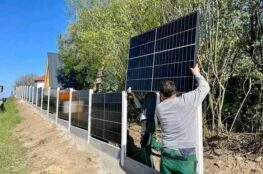Still hurting from the gyrating fuel prices, South African drivers are holding their breath as July approaches. According to the Central Energy Fund’s end-of-month figures, after significant fuel price reductions in June, modest adjustments appear to be on the horizon for July.
Those filling up their tanks may expect to pay slightly less for both types of petrol, with 95 Unleaded displaying an over-recovery of 17 cents and 93 Unleaded dropping by about 24 cents. The outlook is less promising for diesel drivers, though, with price hikes of about 12 cents for 50 ppm fuel and 18 cents for 500 ppm diesel expected.
“We’re hoping for the best but preparing for potential increases,” said Mandla Sithole, a cab driver in Johannesburg. “Every dollar is important to us. We’re keeping a tight eye on everything.
These statistics are not set in stone, but they do provide a general direction for where fuel costs may be headed. The final pricing, which will be published early next week, may be affected by factors such as the Slate Levy. On July 5th, a price increase is scheduled to go into effect.
The following becomes clear when one thinks about the numbers. If the foregoing scenarios play out, the price of a gallon of 95 Unleaded in coastal South Africa will be around R21.70 and the price in the interior will be around R22.43. It is predicted that the price of 93 ULP in the interior will be roughly R22.10.
“The price adjustments are a delicate balance of several elements,” says Dr. Nombuso Khanyile, an economist. The performance of the local currency and the price of oil on international markets are important considerations. Both have shown considerable swings in behaviour this month.
Brent crude oil saw modest growth in June, peaking around $76 early in the month before falling to below $74 later in the month. Midway through the month, the rand experienced a small rally to roughly R18.15; by the end of the month, it had risen to R18.86. This is still less than the R18.98 monthly average seen the month before.
Analysts are generally optimistic until the release of July’s final statistics for fuel price adjustments. For the average South African, a fluctuation in petrol prices has far-reaching effects beyond the expense of transportation. The cost of fuel has a ripple effect on the prices of all goods and services, as Dr. Khanyile explains. It’s an important economic gauge because of the effect it has on consumer spending and general living expenses.
Good news for those who use petrol, and bad news for those who use diesel. For now, drivers throughout the country will be keeping an eye on the news in the hopes that July will be easier on them. As we prepare for the coming month, one thing is certain: the future is still uncertain.
About The Author:
Sizwe Mikhwenya is a seasoned journalist specialising in business, the environment, and current affairs. With a decade-long career reporting on the pulse of South Africa, Lethabo’s work has been featured in some of the country’s most respected publications, earning recognition for her insightful, comprehensive reporting.




